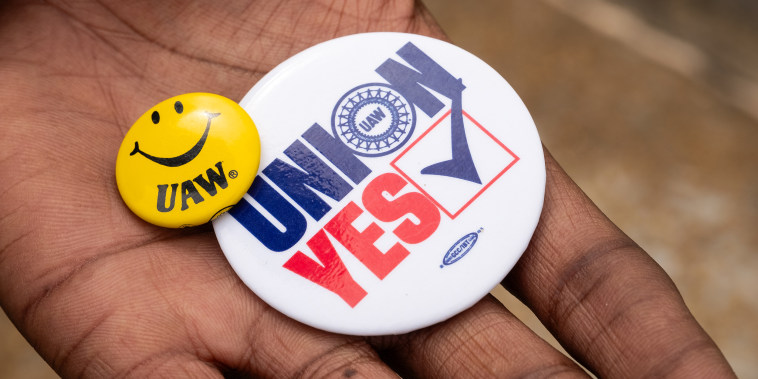The recent decision by Volkswagen workers in Tennessee to join the United Auto Workers (UAW) union represents a significant victory for unionization efforts in the South. The vote, which took place at the Chattanooga plant with a narrow margin of 1089 to 833, has far-reaching implications for labor relations not only within the company but also in the broader context of the American auto industry.
One of the key factors that led to this historic win for the UAW was the growing dissatisfaction among Volkswagen employees regarding their working conditions and treatment by the company. Reports of long shifts, low wages, lack of job security, and limited representation in decision-making processes all contributed to a sense of disenchantment among the workers. The decision to unionize was seen as a way to address these issues and to advocate for better working conditions and benefits.
The UAW’s successful organizing efforts at the Volkswagen plant in Tennessee are especially noteworthy due to the region’s historical resistance to unionization. The South has long been considered a difficult terrain for labor unions, with many states enacting laws that make it challenging for workers to organize. Despite these obstacles, the UAW’s persistence and strategic approach ultimately paid off, signaling a potential shift in the labor landscape of the Southern states.
Furthermore, the decision to join the UAW is expected to have broader implications for the auto industry as a whole. With the rise of automation and other technological advancements, workers are increasingly concerned about job security and ensuring that they have a voice in shaping the future of their industry. By joining forces with a powerful union like the UAW, Volkswagen workers in Tennessee have positioned themselves to have a stronger say in negotiations related to wages, benefits, and working conditions.
The successful unionization effort at the Chattanooga plant also highlights the importance of solidarity among workers in the face of corporate power. By coming together and standing united, employees have shown that they can overcome significant challenges and achieve meaningful change in their workplaces. This sense of collective action and empowerment is vital not only for addressing immediate concerns but also for promoting a more equitable and just society at large.
In conclusion, the decision by Volkswagen workers in Tennessee to join the UAW represents a significant milestone in the ongoing struggle for workers’ rights and labor justice. By standing together and advocating for their interests, these employees have taken a bold step towards creating a more equitable and sustainable future for themselves and future generations of workers. The historic win at the Chattanooga plant serves as a powerful reminder of the importance of unity, determination, and solidarity in the fight for social and economic justice.

